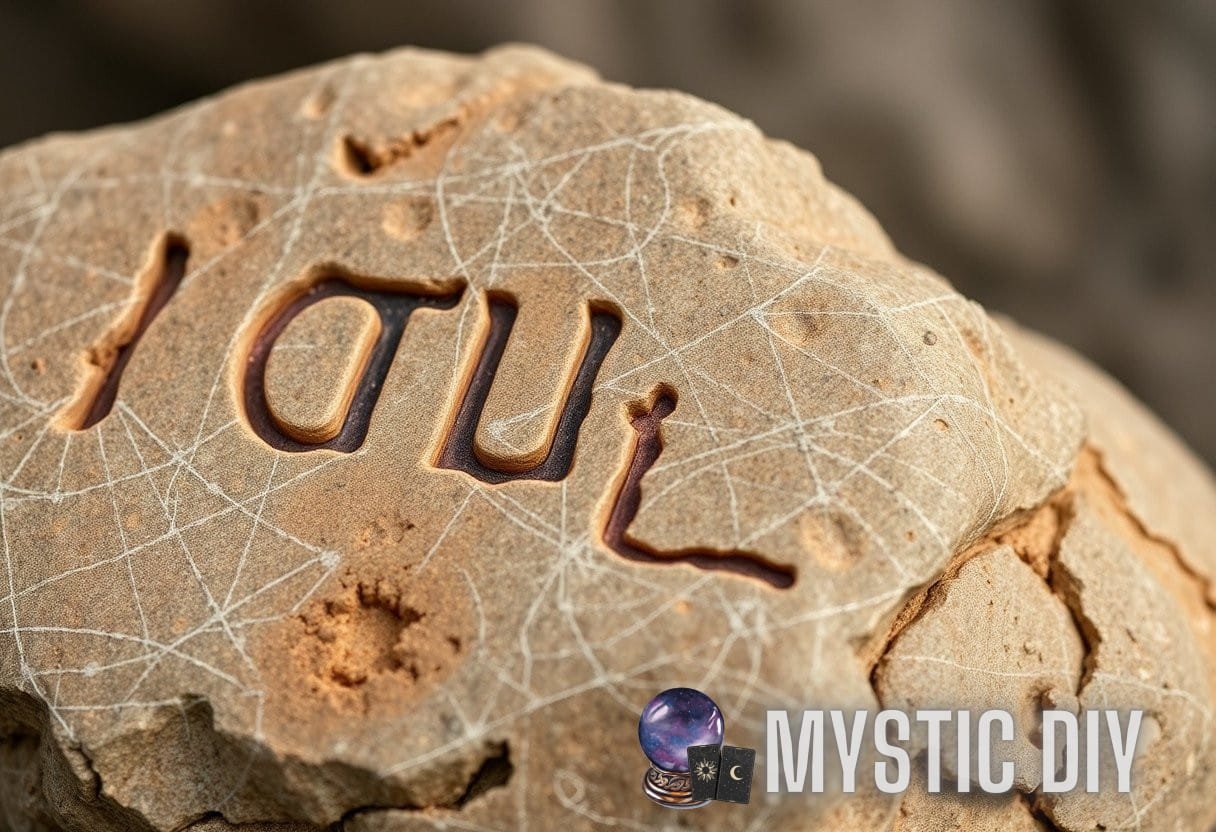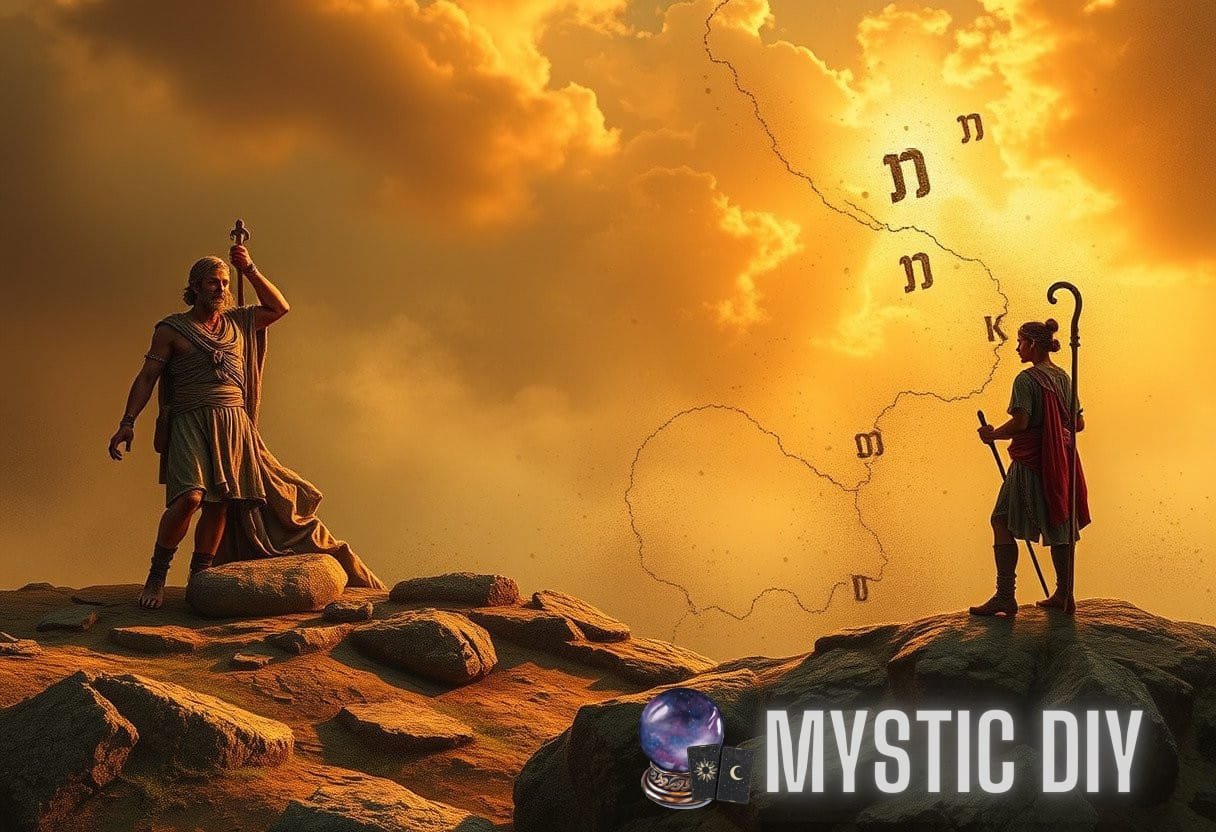Runes and Resonance: Investigating the Cognitive Echoes of Ancient Symbols in Modern Thought
The study of runes, ancient symbols carved on stones and wood, offers fascinating insights into how these symbols resonate within the human psyche. The cognitive runes influence the way we interpret and understand the world around us.
The Historical Context of Runes
Runes originated from the Germanic tribes in Northern Europe and were used as a writing system around the 1st century AD. This writing system, known as the Elder Futhark, consists of 24 characters, each representing phonetic sounds as well as abstract concepts.
- The name “rune” itself is derived from the Proto-Germanic word “*runa,” which means “secret” or “whisper,” suggesting a sacred or mystical quality associated with these symbols.
- Runes were often employed not just for communication but also in rituals, invoking the power of the symbols in ceremonies for protection, healing, and divination.
- Historically, runes carried significant cultural weight, lending a sense of identity to Germanic peoples during the early Middle Ages.
As civilizations evolved, runes became less prominent, especially with the rise of the Latin alphabet. However, their mystique endured, and they resurfaced in various forms throughout history, particularly during periods of resurgence in interest in ancient cultures and spirituality.
The Cognitive Influence of Runes
The concept of cognitive runes influence takes into account how these ancient symbols can impact an individual’s thought processes and decision-making. Cognitive psychology suggests that symbols can create a framework for understanding complex ideas, and runes, with their rich meanings, are no exception.
Studies in symbolism demonstrate that individuals often ascribe personal significance to symbols encountered in cultural contexts. For instance, a particular rune might evoke emotions of strength and protection, leading individuals to feel more empowered in their lives.
- Emotional Resonance: Ancient symbols like runes can trigger emotional responses that shape how individuals perceive their experiences.
- Symbolic Representation: Each rune is associated with specific meanings—such as “Fé” representing wealth and “Algiz” symbolizing protection—which can influence decision-making.
- Archetypal Connections: Runes can connect deeply with Jungian archetypes, serving as a bridge between the conscious and unconscious mind.
Modern Applications of Runes
In contemporary society, runes have found their way into various practices, including psychology, spirituality, and art. Their influence extends beyond the realm of historical interest, impacting modern cultures in multiple ways.
Runes in Therapy and Personal Development
Psychologists and therapists have begun incorporating runes into therapeutic practices, particularly in art therapy and intuitive counseling. The cognitive runes influence patients’ self-exploration and understanding of their own narratives. Here’s how they are utilized:
- Art Therapy: Patients may create rune-inspired artwork, channeling their emotions and fostering dialogue about their feelings and experiences.
- Journaling and Reflection: Clients might draw a rune and reflect on its meaning in their lives, encouraging greater self-awareness and cognitive engagement.
- Guided Meditation: Guided sessions that incorporate rune visualization can help individuals connect with their inner selves and reduce anxiety.
Runes in Spiritual Practices
Various spiritual communities have adopted runes as tools for divination, tapping into their ancient wisdom to provide guidance and insight.
- Rune Casting: Much like tarot card readings, rune casting involves drawing runes to make predictions or glean insights about personal situations.
- Ritual Use: Some practitioners use runes during rituals to invoke various energies, such as protection or abundance.
- Symbolic Meditation: Meditating on a selected rune can aid in focusing intention and enhancing personal growth.
Cognitive Engagement with Runes
The cognitive runes influence extends to various scholarly disciplines, including linguistics, anthropology, and cognitive science. Scholars analyze how these symbols affect cognition and language, leading to discussions on semiotics and cultural studies.
Interdisciplinary Perspectives

Research from different disciplines enriches our understanding of how runes impact thought:
- Linguistics: Studies of runic inscriptions help linguists understand early Germanic languages and their evolution over time.
- Anthropology: Anthropologists investigate how runes function within the cultural contexts of the societies that utilized them, examining their roles in communication and identity.
- Cognitive Science: Cognitive scientists study the impact of symbols on mental processes, exploring how symbols like runes influence memory, learning, and perception.
Case Studies of Runes in Modern Culture
Several contemporary examples highlight the resurgence of runes and their cognitive impact in modern culture. These case studies illustrate the symbolic power of runes and their influence on individuals and communities.
The Rise of Rune Popularity Online
In recent years, the digital age has seen a renewed interest in runes as individuals seek connections to their heritage and spirituality. Social media platforms have facilitated communities centered around rune reading, crafting, and learning.
- YouTube Channels: Numerous content creators on platforms such as YouTube provide tutorials on rune casting, history, and interpretation, reaching wide audiences and making runes accessible.
- Online Workshops: Virtual workshops allow enthusiasts to learn about runes from qualified practitioners, creating spaces for shared learning and community support.
- Self-Publishing: Many individuals have begun self-publishing books and guides about runes, encouraging personal exploration of these symbols.
Rune Workshops and Community Events
Local communities host workshops that focus on rune learning and application, where individuals gather to share insights and experiences. These events promote cultural heritage and personal development through collective engagement with runes.
- Meaningful Connection: Participants discuss the significance of various runes, sharing personal stories and interpretations, amplifying the cognitive runes influence.
- Learning Circles: Learning circles provide a safe space for exploration and discussion among individuals interested in personal growth and spiritual development.
- Creative Expression: Many workshops emphasize creativity through art, allowing participants to paint or forge their own personal runes.
Scientific Studies on Symbolism and Cognition
Numerous studies have delved into the effects of symbols on human cognition, providing empirical backing for the claims of cognitive runes influence. Researchers have uncovered compelling evidence about how symbols can evoke various cognitive and emotional responses.
- Symbolic Processing: Research has shown that symbols are processed differently in the brain than words, highlighting the unique cognitive pathways activated by runes.
- Measurement of Emotional Response: Studies using EEG and fMRI have documented the emotional responses elicited by visual stimuli, including symbolic representations like runes.
- Impact on Memory: Experiments indicate that symbols can improve memory retention and recall, showcasing how runes can serve as mnemonic devices.
The Future of Runes in Cognitive Research
The field of cognitive science continues to explore how ancient symbols shape modern thought. The cognitive runes influence will likely be a focus of upcoming research, leading to deeper understanding of human cognition and the significance of symbols in our lives.
As research progresses, we may discover new applications of runes in various domains, from education to therapy. The ability of runes to stimulate thought and provide insights into personal and collective experiences illustrates their timelessness and potential for relevance in the contemporary landscape.
Conclusion
Incorporating ancient runes into modern life provides unique opportunities for self-reflection, personal growth, and deeper understanding of the cognitive processes at work within us. The cognitive runes influence aligns with humanity’s innate drive to seek meaning, connection, and contextual understanding of our existence. As we continue to engage with these symbols, we not only honor our history but also explore the profound impacts they have on our modern consciousness.
For more information on runes and their psychological implications, visit



